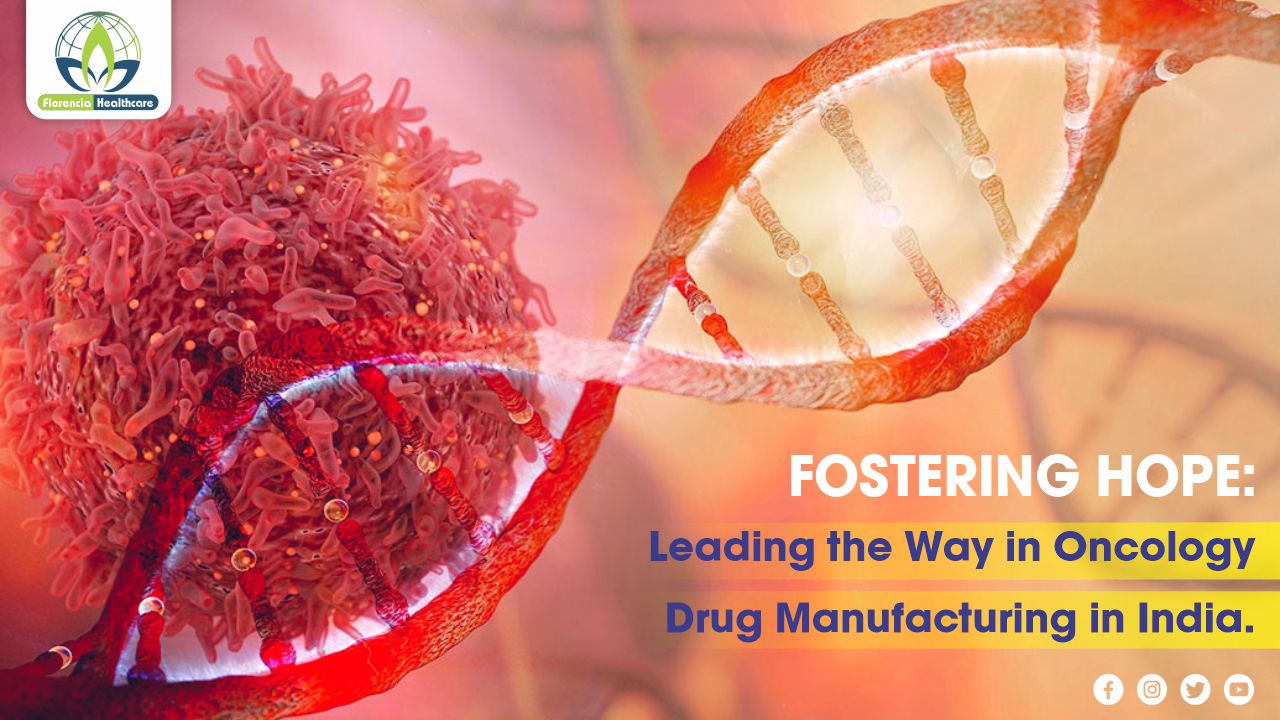Cancer, a formidable adversary of human health, has impacted millions of lives around the world. For decades, it has been a relentless challenge for healthcare systems and pharmaceutical companies to develop effective treatments that not only combat this disease but also make them accessible and affordable to patients globally.
In recent years, India has emerged as a shining beacon of hope on the global stage when it comes to oncology drug manufacturing. This transformation has not only improved the healthcare landscape within the country but has also had a profound impact on individuals fighting cancer worldwide. In this blog, we will delve deep into the factors contributing to India’s ascendancy in this vital field, the innovations driving this growth, and the hopeful future it promises for cancer patients.
The Indian Pharmaceutical Industry’s Rise to Prominence
The Indian pharmaceutical industry has undergone a remarkable evolution over the past few decades, and today, it stands as a global force to be reckoned with. Several key factors have contributed to this remarkable journey:
1.Cost-effectiveness:
One of India’s most significant contributions to global healthcare is its ability to produce high-quality drugs at a fraction of the cost compared to Western countries. This cost-effectiveness extends to oncology drugs, making them more accessible to patients worldwide.
2.Regulatory Compliance:
India’s pharmaceutical industry adheres to stringent regulatory standards, ensuring that drugs manufactured in the country meet international quality and safety criteria. This has bolstered the confidence of patients and healthcare professionals in Indian pharmaceutical products.
3.Skilled Workforce:
India boasts a vast pool of highly skilled scientists, researchers, and technicians who are at the forefront of drug development and manufacturing. Their expertise has been instrumental in producing world-class oncology drugs.
4.Research and Development Investments:
Indian pharmaceutical companies have been investing heavily in research and development, particularly in the field of oncology. This commitment to innovation has led to the development of cutting-edge cancer treatments.
Oncology Drug Manufacturing: A Noble Pursuit
India’s role in oncology drug manufacturing cannot be overstated. Cancer is a global health challenge that affects millions of lives annually. Access to affordable and effective cancer treatments is vital for patients, regardless of their geographical location or economic status. India’s pharmaceutical industry has recognized this pressing need and risen to the occasion.
1.Affordable Cancer Treatment:
India’s oncology drugs are renowned for their affordability. Patients from around the world travel to India for treatment, saving substantial amounts on medical expenses without compromising on the quality of care.
2.Global Distribution:
Indian pharmaceutical companies export their oncology drugs to over 200 countries. This extensive distribution network ensures that essential cancer medications reach patients in even the remotest corners of the globe.
3.Clinical Trials:
India has become a hub for oncology clinical trials. Many multinational pharmaceutical companies collaborate with Indian research institutions, leveraging the country’s vast patient population for drug testing and development.
Innovations in Oncology Drug Manufacturing
India’s prowess in oncology drug manufacturing extends beyond generic medications; it encompasses innovative drug development as well. The nation has made significant strides in creating novel therapies and treatments that promise hope for cancer patients worldwide.
1. Biosimilars:
India has emerged as a leader in producing biosimilars—biological drugs that are highly similar to already approved biologics. These biosimilars offer cost-effective alternatives for cancer treatment and have gained acceptance in various global markets.
2.Targeted Therapies:
Indian pharmaceutical companies are at the forefront of developing targeted therapies for various types of cancer. These therapies are designed to specifically target cancer cells, minimizing damage to healthy tissue and reducing side effects.
3.Immunotherapy:
Immunotherapy, which harnesses the body’s immune system to fight cancer, has gained significant traction in India’s drug development landscape. Indian researchers are actively exploring new immunotherapeutic approaches to treat cancer effectively.
Challenges and the Road Ahead
Despite India’s remarkable progress in oncology drug manufacturing, it faces several challenges that warrant attention:
1.Intellectual Property Concerns:
Intellectual property rights and patent disputes remain significant challenges for the Indian pharmaceutical industry. Striking a balance between innovation and accessibility is an ongoing struggle.
2.Quality Control:
Maintaining consistent quality across a vast production scale is a challenge. Ensuring that all drugs meet stringent quality standards is imperative to sustain the industry’s reputation.
3.Regulatory Hurdles:
Stringent regulatory requirements in various countries can be barriers to market entry for Indian pharmaceutical companies.
4.Infrastructure:
To continue leading in oncology drug manufacturing, India must continually invest in research infrastructure and technology.
Conclusion
India’s remarkable journey in best oncology drug manufacturing in India is a testament to its dedication to addressing critical global healthcare needs. Through affordability, innovation, and a commitment to quality, India has become a beacon of hope for millions of cancer patients worldwide. As the Indian pharmaceutical industry continues to evolve and rise to new challenges, it reaffirms its dedication to fostering hope and leading the way in oncology drug manufacturing.
With each breakthrough, India takes a step closer to a world where cancer is not only treatable but also affordable and accessible to all. The nation’s contribution to oncology drug manufacturing serves as an inspiring example of how science, innovation, and commitment can come together to combat one of humanity’s most formidable adversaries. In the end, it is not just about producing drugs; it is about fostering hope, improving lives, and making the world a better place for everyone.


Asking questions are genuinely good thing if you are not understanding anything entirely, except this article provides fastidious understanding yet.
8. Проведение консультаций, предложение организационно-методичной содействия управлениям эпидемиологического надзора да лечебно-профилактических учреждений вдоль устранению эпидемиологических задач.